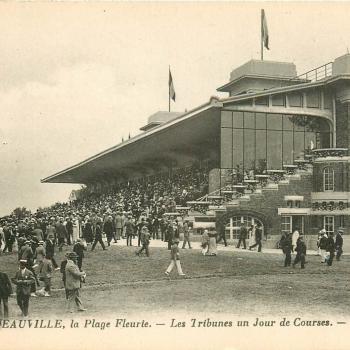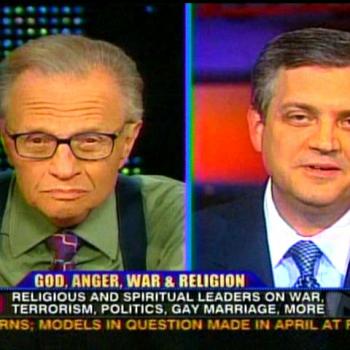Voters do not have to make the kind of political calculations that haunted Europeans. Here are a couple of amazing ironies that emerge in the latest installment of the Joseph Stalin biography (reviewed here by Keith Gessen).
Imagine if Stalin had allowed Communist parties to form alliances with social democrats:
Most significant, from Stalin’s perspective, was that he really did have critics within the Party. He had critics because he was not Lenin. He had not almost single-handedly built a revolutionary party and then led it to power in the world’s largest country. And he made mistakes. He urged the Red Army to capture Lwów in 1920, contributing to the loss of Poland; he urged the Chinese Communists to ally with the Nationalists, resulting in thousands dead; most fatefully, he refused to allow European Communist parties to ally with social democrats—a decision that helped propel Adolf Hitler to power. As Kotkin points out, “In no free and fair election did the Nazis ever win more votes than the Communists and Social Democrats combined.”
Or, imagine if the Western powers had formed an alliance with Stalin earlier rather than after Hitler had dominated most of Europe:
Worse still, the Terror made Stalin an unacceptable ally for the British in 1939. Kotkin shows that Stalin’s first choice in the months before the war was not Hitler but Chamberlain. He sent detailed terms to Britain for a military alliance. Chamberlain was not interested, and Kotkin, refusing the benefits of hindsight, doesn’t blame him. Stalin had just murdered hundreds of thousands of his own citizens, staged show trials of his former comrades, and carried out purges of putative socialist allies in Spain. Hitler would eventually overtake him, but as of 1939 Stalin had killed more people by far. He was, as Kotkin says, “an exceedingly awkward potential partner for the Western powers.” And then, on top of all the killing, the Soviets were also socialists who had repudiated tsarist-era debts.
Or, imagine if people compared Hitler to Stalin on the basis of work ethic:
Kotkin’s Stalin is a workaholic. He is a tireless reader, not just of books but of the endless reports he receives from his ministries and deputies and, most of all, from his secret police. Kotkin compares him favorably with the hedonistic Mussolini and the late-sleeping Hitler. The Führer’s hands-off tyranny has led to a historians’ debate about his actual participation in the crimes of his regime, and to Ian Kershaw’s famous concept of “working towards the Führer”; that is, anticipating his wishes in the absence of direct orders. No such confusion can exist with Stalin. “One comes away flabbergasted,” Kotkin writes, “by the quantity of information he managed to command and the number of spheres in which he intervened.” Stalin adjusted the grain quotas during collectivization, or refused to; he read novels, attended plays, suggested changes to new films; and he edited the interrogation protocols of accused enemies of the people, adding, deleting, urging further lines of questioning as well as methods for getting answers (“Beat Unshlikht for not naming the Polish agents for each region”).
Doesn’t the fact that Alabamans had to choose between Doug Jones and Roy Moore make the United States look comparatively tame (or “great” for all those Sean Hannity listeners out there)?
In point of fact, as Stephen Wolfe explains, evaluating politics and politicians through a moral calculus does not really do justice to the Christian faith:
For a Christian, the standards of the moral life is the moral law, which is summarized in the Decalogue. The first part concerns man’s duty to God, including proper worship. Since the principal end of humankind is the worship of God, which most distinguishes humankind from brutes, the true worship of God is the highest moral act one can perform. Not to give God his due in worship is the supreme act of moral corruption. One who fails to worship God properly (which, according to orthodox Christianity, is only through faith in Christ) is morally corrupt.
But surely those who believe that voting endorses candidates’ moral life do not think that true or false worship is part of the endorsement. Evangelicals have been very willing to endorse and vote for Mormons and Roman Catholics, despite having serious disagreements with the former over a host of theological issues and the latter over what is traditionally considered the “idolatry of the Mass.” These are moral issues, that is, they are First-Table disagreements over giving God his due. Yet failures to give God his due are seemingly not endorsed through voting.
Voting does not therefore endorse all parts of the moral life, even the principal part. But why? Because proper worship and good soteriology do not concern the civil realm. Worship concerns heavenly life and the ecclesiastical administration, not the civil. The Second-Table concerns civil justice, order, and our earthly duties. Voting does not endorse all of the candidate’s moral life, only the part relating to earthly life. This is a matter of civil righteousness.
What do you know? Living in a fallen world is complicated.












